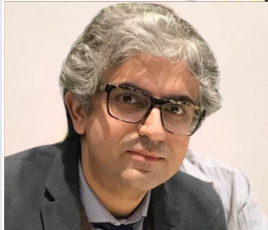Asia-Pacific Mental Health and Well-being Congress
THEME: "Future Directions: Pioneering Mental Health and Well-being Initiatives"
 27-29 Oct 2025
27-29 Oct 2025  Bali, Indonesia
Bali, Indonesia THEME: "Future Directions: Pioneering Mental Health and Well-being Initiatives"
 27-29 Oct 2025
27-29 Oct 2025  Bali, Indonesia
Bali, Indonesia 
Mentis Clinic Ltd, UK
Title: Rethinking Neurodivergence: A Psychodynamic Lens on Autism, ADHD, and the Question of Subjectivity
Dr. Shaikh is a highly experienced Consultant Psychiatrist specializing in Adult Neurodivergence, with a particular focus on Attention Deficit Hyperactivity Disorder (ADHD) and Autism Spectrum Disorder (ASD). His clinical approach is holistic and patient-centered, integrating neurobiological insights with psychodynamic principles to deliver tailored, comprehensive care. Dr. Shaikh began his medical training at Dow Medical College in Karachi, Pakistan, graduating in 1999. He later trained in psychiatry in Hull and East Yorkshire, earning certification in General Adult and Rehabilitation Psychiatry from the Yorkshire Deanery in 2007. Further strengthening his expertise, he holds two Master of Science degrees—one in Population Health and another in Medical Leadership.
While dominant paradigms in neurodivergence, particularly those addressing autism and ADHD, prioritize biomedical, cognitive, and behavioural frameworks, these often overlook the core of what it means to live as a subject with difference. This presentation proposes a re-examination of neurodivergence through a psychodynamic and Lacanian lens, focusing not on deficit or dysfunction, but on the structural nuances of subjectivity, desire, and symbolic disruption. Drawing on Lacanian concepts such as the Imaginary, Symbolic, and Real registers; foreclosure; and the logic of the drive, this paper argues that neurodivergent individuals resist assimilation into normative developmental narratives not due to pathology, but due to fundamentally different modes of inhabiting language, relationality, and embodiment. Clinical vignettes from private practice and community psychiatry are used to illustrate moments where standard interventions falter, and where a shift in clinical stance toward listening beyond the demand can offer a more attuned and ethical engagement.
The presentation outlines a method of psychodynamic formulation that respects the autonomy and enigma of neurodivergent experience. It critiques the pressures to normalize and highlights the emotional violence of over-pathologization. Instead, it calls for a practice rooted in symbolic hospitality: one that can contain difference without erasing it. The conclusion points toward the integration of psychodynamic thought into multi-disciplinary mental health care as essential for a more inclusive and subject-respecting future in neurodivergent services.